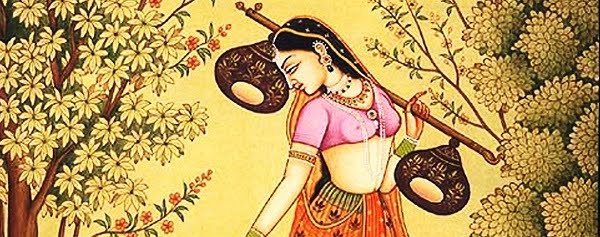
Nava Rasa (represent 9 sentiments or emotional states)
These ‘sentiments’ are as follows:
Shringara
Shringara, a romantic sentiment filled with longing for an absent lover. It contains the holistic aspects of love and is said to represent the universal creative force.
Hasya
Hasya, is comic, humorous and laughter provoking. It can be shown through syncopated rhythmic patterns or a dialogue between instrumentalists causing amusement.
Karuna
Karuna, is pathetic, tearful, sad, expressing extreme loneliness for either god or love.
Raudra
Raudra, is fury or excited anger. This rasa is often used in drama, but in music it can portray the fury of mature degree as in a thunderstorm. Musically it can be shown through many fast, ‘trembling’ ornaments, producing a scary vibrating effect in the lower ranges of instruments.
Veera
Veera, expresses the sentiments of heroism, bravery, majesty and glory. A dignified kind of excitement.
Bhayanaka
Bhayanaka, is frightening or fearful. It is difficult to express in music through one instrument though it can be managed in an ensemble or vocally.
Vibhasta
Vibhasta, is repulsive and disgusting. It is difficult to show through music but has a strong role in drama.
Abdhuta
Abdhuta, is wonderment, amazement, exhilaration and even a little fear as if one is experiencing a strange new experience (e.g. a fast fairground ride). Musically extreme speed and virtuoso technique can express it.
Shanta
Shanta is the last rasa and shows peace, tranquility and relaxation.